
The 1916 United States presidential election was the 33rd quadrennial presidential election, held on Tuesday, November 7, 1916. Incumbent Democratic President Woodrow Wilson narrowly defeated former associate justice of the Supreme Court Charles Evans Hughes, the Republican candidate.
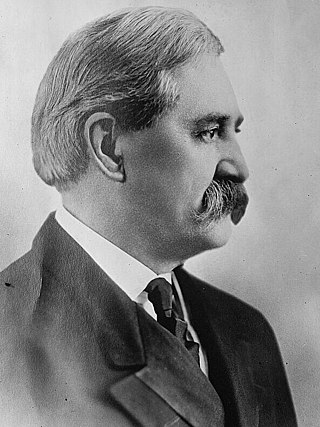
Albert Baird Cummins was an American lawyer and politician. He was the 18th governor of Iowa, elected to three consecutive terms and U.S. Senator for Iowa, serving for 18 years. Cummins was a leader of the Progressive movement in Washington and Iowa. He fought to break up monopolies. Cummins' successes included establishing the direct primary to allow voters to select candidates instead of bosses; outlawing free railroad passes for politicians; imposing a two-cent street railway maximum fare; and abolishing corporate campaign contributions. He tried, with less success, to lower the high protective tariff in Washington.
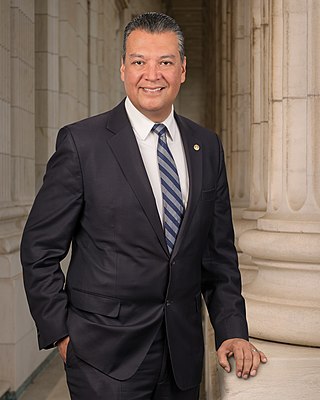
Alejandro "Alex" Padilla is an American politician serving as the senior United States senator from California, a seat he has held since 2021. A member of the Democratic Party, Padilla served as the 30th secretary of state of California from 2015 to 2021 and was a member of the California State Senate and the Los Angeles City Council.

The 1912–13 United States Senate elections were held on various dates in various states. They were the last U.S. Senate elections before the ratification of the Seventeenth Amendment in 1913, establishing direct elections for all Senate seats. Senators had been primarily chosen by state legislatures. Senators were elected over a wide range of time throughout 1912 and 1913, and a seat may have been filled months late or remained vacant due to legislative deadlock. Some states elected their senators directly even before passage of Seventeenth Amendment. Oregon pioneered direct election and experimented with different measures over several years until it succeeded in 1907. Soon after, Nebraska followed suit and laid the foundation for other states to adopt measures reflecting the people's will. By 1912, as many as 29 states elected senators either as nominees of their party's primary or in conjunction with a general election.

Judy May Chu is an American politician serving as the U.S. representative for California's 28th congressional district. A member of the Democratic Party, she has held a seat in Congress since 2009, representing California's 32nd congressional district until redistricting. Chu is the first Chinese American woman elected to Congress.
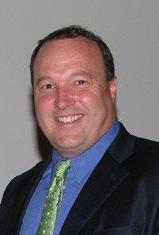
Scott Randall Baugh is an American attorney and politician who served in the California State Assembly from 1995 to 2000, representing the 67th District in coastal Orange County, which included Huntington Beach, Cypress, Fountain Valley, La Palma, Los Alamitos, Seal Beach, Westminster, Rossmoor, Sunset Beach, Surfside, and Midway City. In March 2018, Baugh entered the "top two" primary race for California's 48th congressional district seat for the 2018 midterm elections held by Dana Rohrabacher. Baugh finished fourth in the primary.
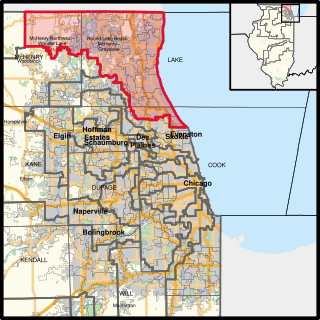
The 10th congressional district of Illinois lies in the northeast corner of the state and mostly comprises northern suburbs of Chicago. It was created after the 1860 census. The district is currently represented by Democrat Brad Schneider.

The 1948 United States elections were held on November 2, 1948. The election took place during the beginning stages of the Cold War. Democratic incumbent President Harry S. Truman was elected to a full term in an upset, defeating Republican nominee New York Governor Thomas E. Dewey and two erstwhile Democrats. The Democrats won back control of Congress from the Republicans. Until 2020, Democrats would never again flip a chamber of Congress in a presidential election cycle.
The politics of Michigan, a competitive state that leans Democratic in presidential elections, are divided. Michigan is considered part of the Democrats' "Blue Wall." Governors since the 1970s have alternated between the two parties, and statewide offices including attorney general, secretary of state, and senator have been held by members of both parties in varying proportions, though the state currently is represented by two Democratic U.S. Senators and Democrats hold every statewide office. The Democratic Party has a slim majority of two seats in the Senate of the Michigan Legislature, and the House is currently deadlocked at 54 seats for each party. The state's congressional delegation is commonly split, with one party or the other typically holding a narrow majority, and Democrats currently have a 7-6 majority.

The 1898–99 United States Senate elections were held on various dates in various states. As these U.S. Senate elections were prior to the ratification of the Seventeenth Amendment in 1913, senators were chosen by state legislatures. Senators were elected over a wide range of time throughout 1898 and 1899, and a seat may have been filled months late or remained vacant due to legislative deadlock. In these elections, terms were up for the senators in Class 1.

The 1944 United States elections was held on November 7, 1944, during the final stages of World War II. President Franklin D. Roosevelt was easily re-elected to an unprecedented fourth term, and the Democratic Party retained their majorities in both chambers of Congress.

The 1822 United States House of Representatives elections in New York were held from November 4 to 6, 1822, to elect 34 U.S. Representatives to represent the State of New York in the United States House of Representatives of the 18th United States Congress.
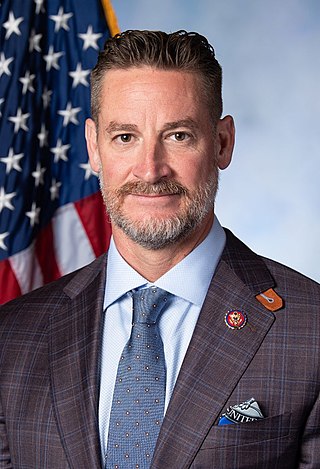
William Gregory Steube is an American attorney and politician serving as the U.S. representative for Florida's 17th congressional district since 2019. His district is based in Sarasota. A member of the Republican Party, Steube served three terms in the Florida House of Representatives, representing the Sarasota-Manatee area from 2010 to 2016, as well as two years in the Florida Senate until 2018, representing Sarasota County and the western part of Charlotte County.
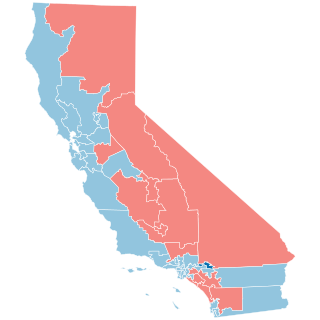
The 2014 United States House of Representatives elections in California were held on Tuesday, November 4, 2014, with a primary election on June 3, 2014. Voters elected the 53 U.S. representatives from the state of California, one from each of the state's 53 congressional districts. The elections coincided with the elections of other offices, including a gubernatorial election.

The 1924 United States Senate election in Iowa took place on November 4, 1924. Incumbent Republican Senator Smith W. Brookhart ran for re-election to a full term in office against Democrat Daniel F. Steck.

The 1902 California gubernatorial election was held on November 4, 1902, to elect the governor of California. George Pardee won the election with 48.06% percent of the popular vote and was the Governor of California until 1907.

The 2024 United States Senate elections in California will be held on November 5, 2024, in order to elect a person to represent the state of California to the United States Senate. There will be two ballot items for the same Class 1 seat: a special election to fill the seat for the final weeks of the 118th United States Congress, and a general election for a full term that starts on January 3, 2025, starting in the 119th United States Congress. California uses a nonpartisan blanket primary, in which all candidates regardless of party affiliation appear on the same primary ballot and the two highest-placing candidates advance to the general election.

Felix Barry Moore is an American politician who is the U.S. representative for Alabama's 2nd congressional district since 2021. The district is based in the state capital, Montgomery, and stretches into the Wiregrass. He represented the 91st district in the Alabama House of Representatives from 2010 to 2018.

Elections were held in Illinois on Tuesday, November 3, 1936.

The 2024 United States House of Representatives elections will be held on November 5, 2024, as part of the 2024 United States elections, to elect representatives from all 435 congressional districts across each of the 50 U.S. states, as well as six non-voting delegates from the District of Columbia and the inhabited U.S. territories. Special elections may also be held on various dates throughout 2024. Numerous other federal, state, and local elections, including the U.S. presidential election and elections to the Senate, will also be held on this date. The winners of this election will serve in the 119th United States Congress, with seats apportioned among the states based on the 2020 United States census.




















